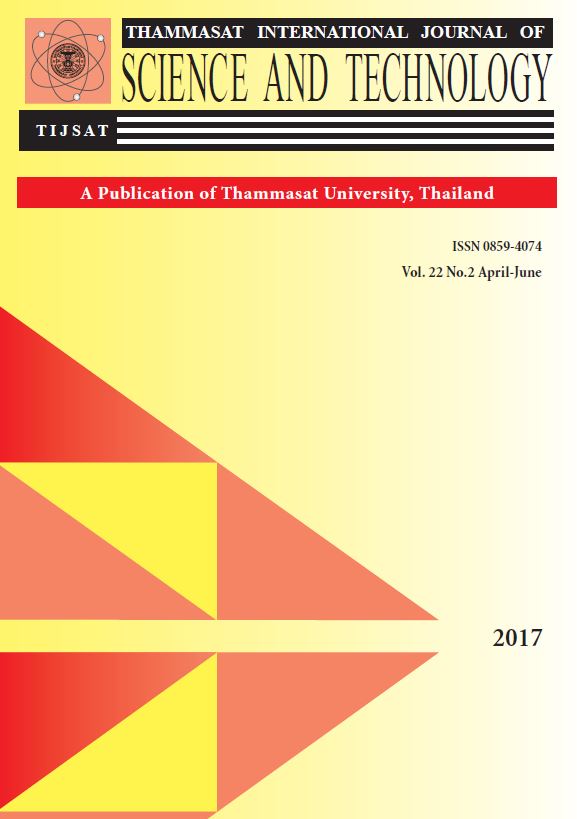Microbiological and Physical Assessment of Green Mussel (Perna viridis) Coated with Green Tea and Ascorbic Acid Stored under Modified Atmosphere Packaging
Main Article Content
Abstract
This research aims to study the effect of modified atmosphere packaging (MAP) on the shelf life of cooked green mussel (Perna viridis) coated with green tea and ascorbic acid. The samples were packaged in air for the control sample (C000) and under different MAP conditions; 40%CO2: 30%N2: 30%O2 (M433), 50%CO2: 50%N2 (M550) and 60%CO2: 20%N2: 20%O2 (M622) stored at 4 ± 1 ˚C for 28 days. The results showed there were some significant declines in the microbiological and physical quality for all treatments with increasing storage time. M622 had the lowest total viable count (TVC) when compared with the other MAP treatments. Based on the total viable count (TVC) in all samples, the shelf life for M622 was more than 28 days, M550 and M433 were 24 days, while C000 was 22 days, respectively. Thus the composition of gas in the packages had an effect in retarding the autolytic and bacteria spoilage degradation of proteins. The high temperatures in the production process of cooked mussel could destroy the pathogens (Coliform bacteria, Escherichia coli, Clostridium perfringens, Staphylococcus aureus, Vibrio parahaemolyticus, Salmonella spp. and Bacillus cereus). The results indicated that pathogens were not found for all samples of cooked green mussel throughout storage.
Article Details
How to Cite
Teerawut, S., Arjpong, R., & Kwan-On, P. (2017). Microbiological and Physical Assessment of Green Mussel (Perna viridis) Coated with Green Tea and Ascorbic Acid Stored under Modified Atmosphere Packaging. Science & Technology Asia, 22(2), 1–9. retrieved from https://ph02.tci-thaijo.org/index.php/SciTechAsia/article/view/90937
Section
Biological sciences


